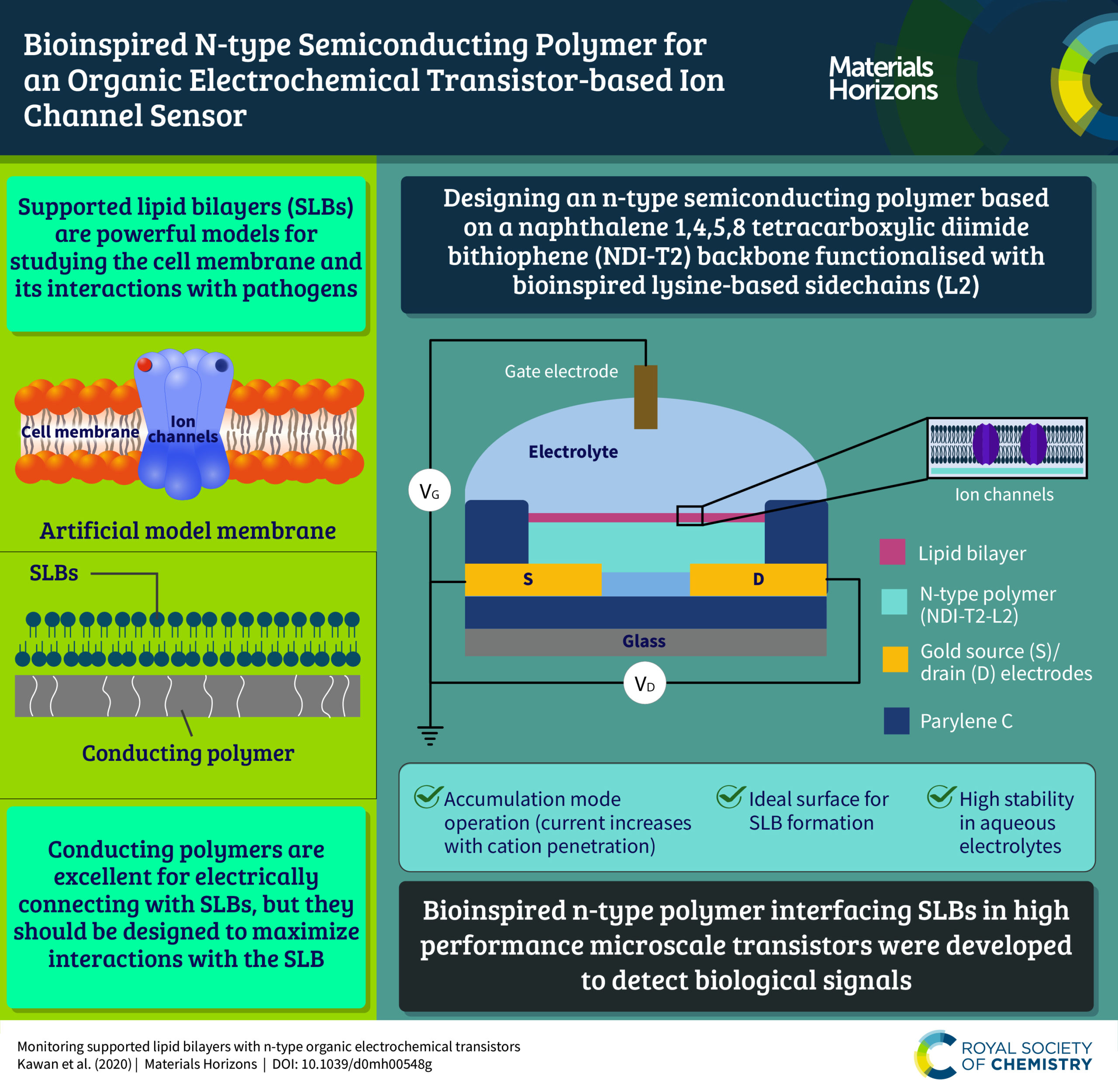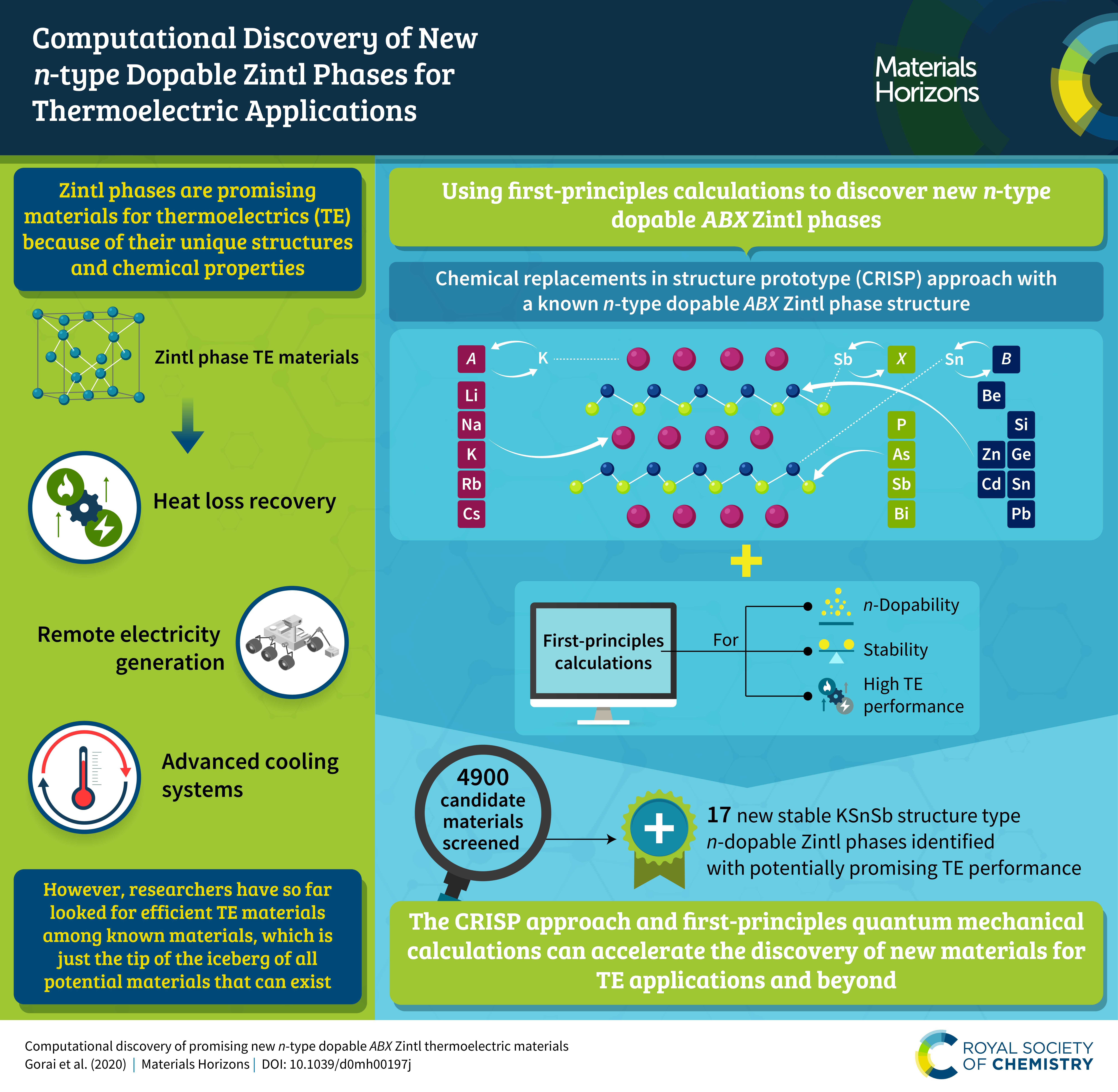Monitoring supported lipid bilayers with n-type organic electrochemical transistors
An infographic highlighting the first example of a bio-functionalized n-type polymer and an n-type OECT interfacing a biomimetic platform
We are pleased to share with you an infographic highlighting the fantastic work by Sahika Inal et al. on the synthesis of an n-type semiconducting polymer functionalized with bio-inspired, lysine-based side chains for an organic electrochemical transistor-based ion channel sensor! Check out the infographic below to learn more or get the full story from their Materials Horizons article linked below.
This Communication was also featured in our Emerging Investigator series, find out more about this series here and check out the full interview with Sahika in this Editorial.
Monitoring supported lipid bilayers with n-type organic electrochemical transistors
Malak Kawan, Tania C. Hidalgo, Weiyuan Du, Anna-Maria Pappa, Róisín M. Owens, Iain McCulloch and Sahika Inal
Mater. Horiz., 2020, 7, 2348-2358
Meet the authors
 |
Sahika Inal, King Abdullah University of Science and Technology (KAUST), Saudi ArabiaSahika Inal is an Associate Professor of Bioengineering with affiliations in Electrical Engineering and Materials Science and Engineering at King Abdullah University of Science and Technology (KAUST). She has a B.Sc. degree in Textile Engineering from Istanbul Technical University (Turkey), an M.Sc. in Polymer Science, and a Ph.D. in Experimental Physics, both from the University of Potsdam (Germany). She completed her postdoctoral training at the Center of Microelectronics of Provence of the Ecole Nationale Supérieure des Mines de Saint-Étienne (France). Her expertise is in polymer science and bioelectronic devices, particularly in the photophysics of conjugated polymers, characterization of polymer films and the design of biosensors and actuators. The Inal lab exploits the functionalities of organic electronic materials, investigates ionic/electronic charge transport, and designs electronic devices that record/stimulate biological signals. Find Sahika on Twitter: @InalSahika Don’t forget to check out the Emerging Investigator series interview with Sahika in this Editorial. |
|
 |
Malak Kawan, University of Cambridge, UKMalak is currently a PhD candidate in Clinical Neuroscience at the University of Cambridge working on developing biohybrid implantable devices for the brain to improve biocompatibility and tissue integration. She received her BS from the University of Delaware in Neuroscience in 2017 with a focus on Chemistry and was working on neurobehavioural studies. She obtained her MS from King Abdullah University of Science and Technology (KAUST) in 2019 in the research area of bioelectronics and worked on integrating lipid bilayers with electrochemical transistors for ion channel recordings. Find Malak on Twitter: @KawanMalak |













